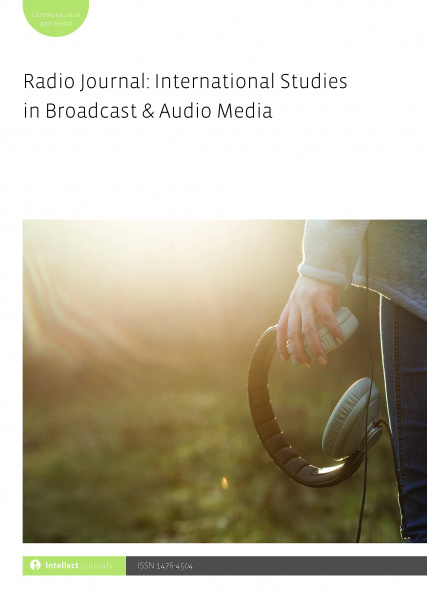
Full text loading...

This article explores how The Listener, a journal launched in 1929 by the British Broadcasting Corporation (BBC), established itself as a site for serious radio criticism in the United Kingdom. However, such coverage did not appear fully formed, but developed and changed over time, depending on the critic(s) and the industrial and cultural contexts within which they worked. By looking at coverage from three periods – the mid-1930s, mid-1950s and mid-1970s – I propose that there have been different distinct phases taken by the radio criticism found within its pages. One important factor shaping the form taken has been the question of intermediality that, in this case, existed between radio and the printed form. Namely, the problem of developing a means of reviewing and critiquing an aural form within a printed medium dominated by traditional visual and literary criticism. Such an insight and understanding, of the way the radio discourse changed over time in The Listener, is vital as this journal has become, especially with its digitalization, an increasingly important resource for scholars working in the field of broadcasting.

Article metrics loading...

Full text loading...
References


Publication Date:
https://doi.org/10.1386/rjao_00064_1 Published content will be available immediately after check-out or when it is released in case of a pre-order. Please make sure to be logged in to see all available purchase options.